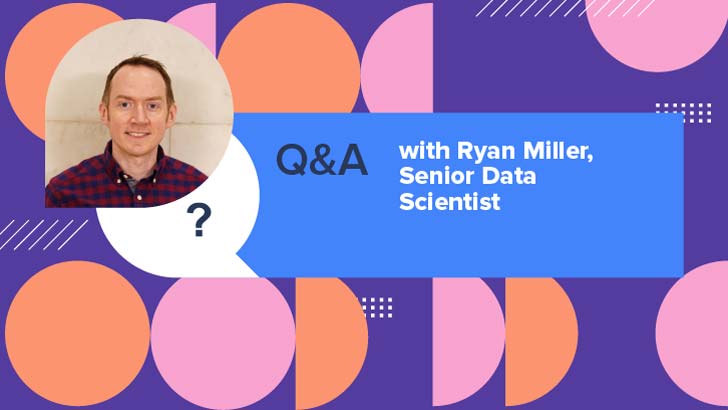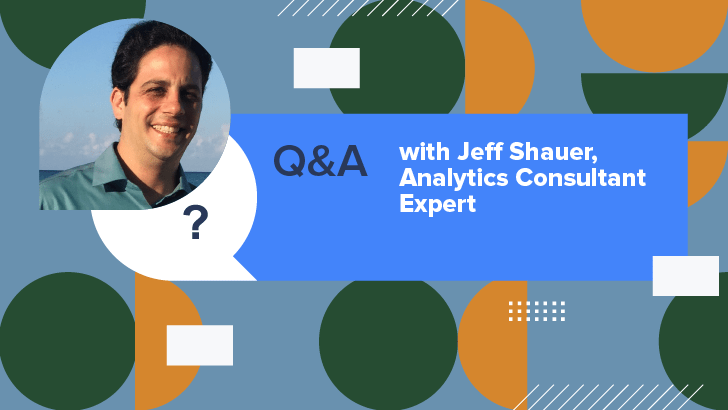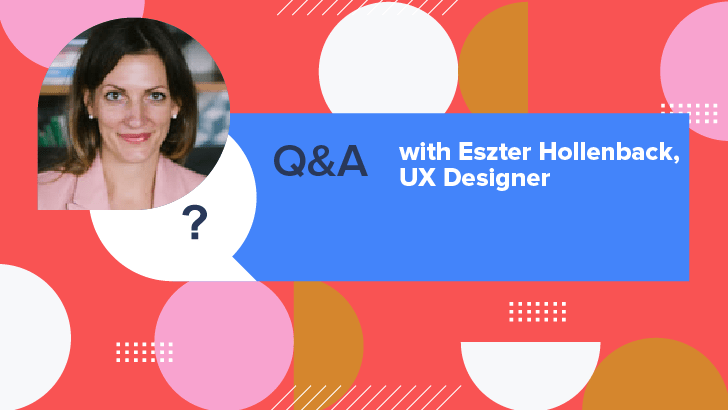Q: Tell us about your background?
A: Sure. I’m a proud Tar Heel. I earned my doctorate in statistics in 2009 from the University of North Carolina at Chapel Hill. After graduation, I began my career in a traditional academic/research setting at a government research lab, where my work focused on a number of application areas with particular emphasis on biomedical imaging, genomics, and material science. But, I quickly got the entrepreneurial bug, and in 2011, I co-founded a health technology start-up which I worked on through 2014.
Most startups fail, and mine was like 90% of all the rest, and we eventually made the decision to shut the doors. It was then that the Experfy team connected with me. Experfy was great. I was able to use their contacts, technology infrastructure, and industry credibility to begin an entirely new career as an independent Data Science Consultant. They screened me for clients and helped me to get my first project, which is absolutely critical because firms don’t give work of this complexity and strategic importance to just anyone–they need to be confident that you can deliver on what your credentials suggest you can do. That is where Experfy fills a critical need for new data scientists. The prospective data science professionals need Experfy’s screening tools as much as the firms do.
Anyway, from 2015 to 2017, I primarily worked independently, with most of my clients coming through the Experfy platform. In 2017, I was swamped with work as I had several concurrent projects/clients. I needed more bandwidth, and ultimately ended up bringing on two partners; a data engineer, and another data scientist. Since then, we’ve continued to grow, and have worked with a wide array of clients across industries in the machine learning, data science, and data engineering application areas. We have a deep network of data scientists and engineers we’ve sub-contracted with over the years, and we continue to expand our client base and our areas of expertise. More recently, we’ve begun to explore opportunities in the defense contracting arena.
On a personal level, my interests in terms of our machine learning practice areas are quite broad. While recent projects have been heavily focussed on natural language processing/understanding, I also have interest and experience with active learning/Bayesian Optimization, ensemble modeling, deep learning, and other areas.
Q: What got you interested in data science and how this field is evolving?
A: I’ve always had an interest in the quantitative sciences, which is what led me to pursue a doctorate in statistics. While I think what exactly data science is or isn’t is still being ironed out, I do think it’s fair to say that it borrows methods from a variety of disciplines, statistics, in particular, representing one of the fundamental pillars, so there was a natural interest and fit as a result.
Foundationally, I believe that data science will continue to be composed of the mathematical and computational sciences. Where I have seen things evolve into something distinct is the need for data science practitioners to be able to adapt to the rapidly evolving technology landscape. I wouldn’t go so far as to say that you need to be technology agnostic, but being flexible in one’s toolset, i.e., the models/algorithms one is familiar with or the software/specific packages one uses is increasingly important.
Q: How did you first hear about freelancing platforms?
A: Harpreet Singh, the Co-founder and Co-CEO of the firm, reached out to me via LinkedIn – this was back in the fall of 2014 (the early days of Experfy)! We had several phone conversations where we took a deep dive into my background, the work I’d done, and the areas of machine learning, AI, and DS I was interested in. My first work as an independent consultant followed shortly thereafter, with Peter Diamandis (an early investor in the company), and a summit he hosts every year (Abundance 360).
Q: What initial challenges did you encounter leading up to a consulting role in the Data Science space?
A: Consulting is fundamentally about trust. As someone interested in the space and trying to figure out how to “break-in,” it can be extremely challenging. Just prior to connecting with Experfy, I’d come off of closing down a start-up I’d co-founded, and I wanted to test the waters of data science consulting. While I was having a number of conversations, closing on an opportunity proved to be elusive. It is not an understatement to say that Experfy paved the path for me. They acted as a trusted referral–clients know the consultant they’ll be working with has been highly vetted, and the consultant knows that they have a supportive partner in Experfy.
Q: Tell us how you got your first client as a consultant?
A: My career and now business in data science consulting would not have started without the relationship I have with the Experfy team and the relationships I developed with the clients I worked with on the platform. My first consulting project was through Experfy; they took a chance in bringing me on to work with one of their most important clients who went on to become an investor.
Q: Tell us about your overall experience with Experfy?
A: I believe the Experfy team’s commitment to excellence, both on the consultant side and on the client side, is its biggest differentiator. I’ve felt like every project/engagement I’ve entered into through the Experfy platform has resulted in an extremely positive experience. Experfy has a vision for the catalytic role that data science can play in revolutionizing many industries, and it is using its platform to put firms into contact with the skilled but scarce professionals who can make that happen. That vision is reflected in Experfy’s willingness to create new consulting business models such as their Talent Cloud, which allows organizations to partner long term with a wide variety of consultants who have great technical skills, but also maintain familiarity with that entity’s specific needs since they work remotely on different projects over time on an ad hoc basis. Consultants get more work while saving money for the client and reducing the risks inherent to onsite consulting work due to Covid-19.
Q: Tell us about a project(s) that had a huge impact on the ROI of a customer?
A: There are several that stand out, and in each case, it was a data product that was core to the value proposition of a company. Firstly, I developed an ad campaign testing framework to efficiently and accurately project the win/lose/draw of two or more ads. This data product represented core intellectual property for the client, which led to a round of successful fundraising, and shortly thereafter, the company’s acquisition. It had a real-world impact. The methodology itself is built on a Bayesian A/B testing framework and recommendation system. Another project that was also in the AdTech space focused on the development of a tool to automate and optimize the distribution of advertising budget across several social media platforms and user demographics. This model, which is still being used by the client two years on, represents a central component of their platform. It has also been shown to outperform human-optimized ad campaigns. It has helped the client raise a round of funding. The model itself leverages a Bayesian Optimization/Bandit-based approach for identifying key demographics to invest in.
I have also developed an automated data extraction and processing tool for Environment, Society, and Governance (ESG) investing. This product represents the core intellectual property for this particular client. I developed a framework for automating the process of pulling data for each category, alleviating the need for individual analysts to go from source to source (e.g., downloading files from the SEC website, Yahoo Finance, and a variety of other sources), and extracting relevant information (key company stakeholders, various company statistics, etc.). In addition to being a great time and cost saver for the client, it also allows them to scale the number of companies in their ESG portfolio.
Finally, I developed a document classifier for automatically classifying patent claims and abstracts into their appropriate patent classes/sub-classes. This service is one of the key differentiators of the client’s software platform, which services patent law firms.
Q: How is your experience with being a part of the TalentCloud model? What are a few key benefits?
A: So far, it has been positive. This is a truly innovative business model that Experfy has built, which will impact consulting for years to come, particularly with the current need to work remotely. To me, the biggest benefit is knowing that the team I’ll be working with is comprised of high-caliber individuals who are open-minded and open to both giving and receiving feedback. Additionally, the diversity of projects is absolutely great – having the ability to work in a diverse set of application areas is an amazing opportunity.
Q: Tell us about your experience working with clients such as Deloitte?
A: I’ve had the chance to work on three separate projects with Deloitte so far; one with the audit team, another with the innovation team, and a third with the health technology team. Culturally, the teams and individuals have been great to work with. They ask good questions and push back on ideas to ensure that both the right decisions are being made and the best approaches are being used.
Q: Tell us about your experience using the talent platforms as a consultant and what according to you is the standout feature?
A: As a consultant, the Experfy platform is intuitive and straightforward to use. The quality of clients on the platform, the responsiveness and support from the Experfy staff. and the feeling that I’m part of the Experfy team.
Q: How do you think enterprises can overcome the challenges to move towards the gig economy? Is the gig economy the future?
A: I think like most things, both personally and professionally, it’s all about relationships and trust. The relationship between the consultant/solopreneur/entrepreneur (I personally prefer these terms over gig worker) and the client is about establishing a mutually beneficial partnership. Having a facilitator for these relationships like Experfy is what I think will rapidly accelerate and reduce the pain points of having enterprise-level companies overcome the challenge of engaging with this talent pool.
Q: Any tips for students who are pursuing a career in data science?
A: There is an increasing number of programs being offered at universities and through boot camps that are providing students with the foundations to pursue a career in data science. Since I entered the field, data science has really taken off as its own area of specialization. I know that Experfy has its own boot camps and data science courses. With that said, I’ve worked with people who’ve come out of boot camps that had backgrounds in other quantitative sciences (one of my partners has his Ph.D. in physics and went through a boot camp) and they’ve all been extremely capable.
I think above and beyond anything else, it is important to have the curiosity to try, test, and learn new methodologies and tools; find ways to get involved in a variety of different projects and application areas, and get solid mentorship. That is what helps set the stage for success. Additionally, a foundation in either a mathematical science (i.e., statistics, physics, computational biology, economics, etc.) or a computational science (e.g., computation science, electrical engineering, etc.) definitely helps provide the necessary foundation.





